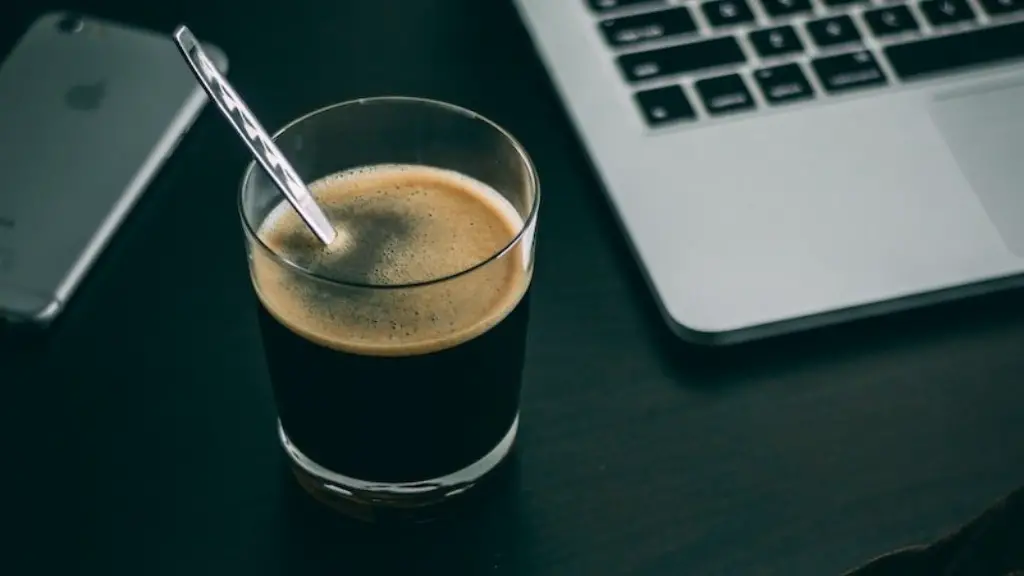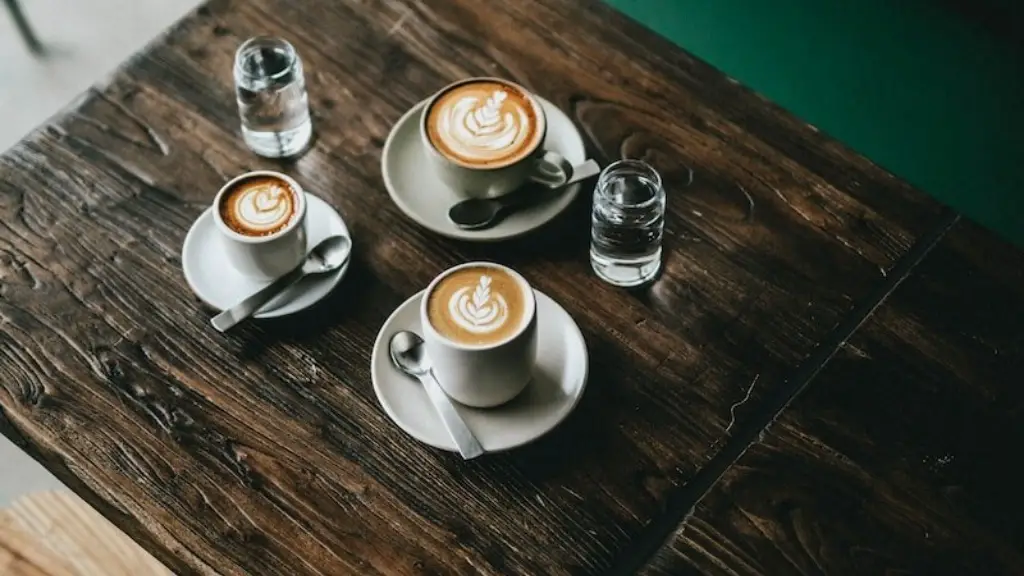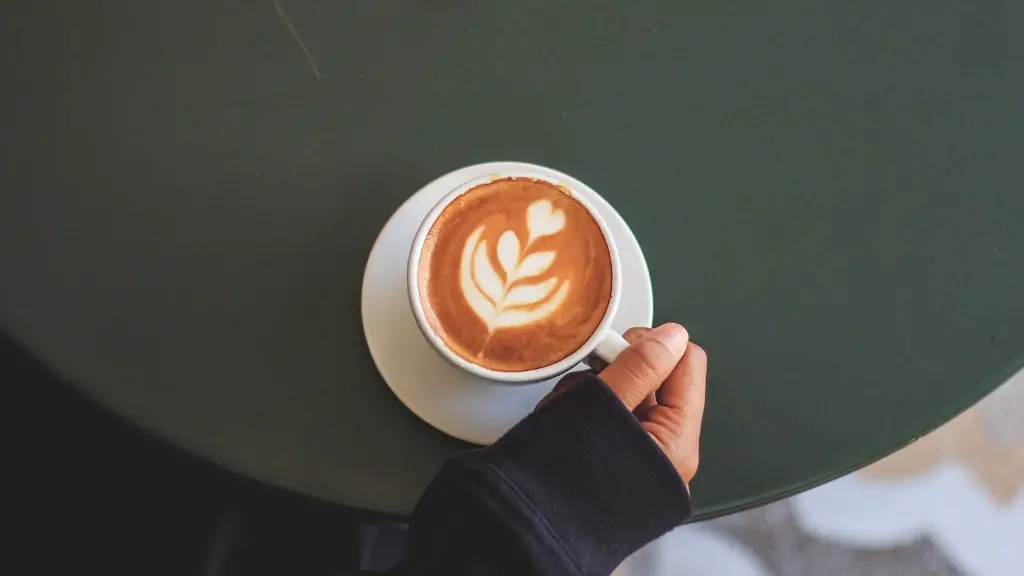What does science say about coffee and sobriety?
Coffee has been around in some form for centuries, but it has been more popular in certain contexts, such as early morning business meetings, that require intense focus and alertness. In modern times, coffee has been embraced as a sobering beverage for those feeling drowsy or foggy after a night of drinking. But does drinking coffee actually sober you up?
When consumed in moderation, coffee can have multiple beneficial effects on the body. It contains caffeine, which is a stimulant that is absorbed quickly into the bloodstream, producing an energizing effect. Caffeine has been known to improve mental and physical performance, increase alertness and focus, and even reduce fatigue.
Research suggests that consuming caffeine will not eliminate the effects of alcohol, but it can temporarily alleviate the feeling of being “tipsy”. A study carried out at the University of Barcelona found that individuals who had drunk coffee demonstrated better cognitive skills and were less likely to suffer memory loss, which are common symptoms of intoxication.
However, the same study reported that participants who consumed coffee after drinking alcohol still exhibited impaired performance on more complex tasks, such as decision making and solving problems. Thus, the effects of caffeine on the body can provide a temporary alertness, but it does not completely eliminate the symptoms of intoxication.
Can coffee replace balanced meals?
The beneficial effects of caffeine can be negated when consumed in excess — typically, any more than 400 to 500 mg per day. Too much caffeine can cause jitters, irritability, headaches, and insomnia. Furthermore, too much consumption of coffee may increase one’s tolerance level, making it less effective over time.
In addition, coffee should not be seen as a meal replacement, nor should it be used as a band-aid solution. Drinking coffee can provide short-term benefits and improve alertness, but it cannot replace the core nutrients and vitamins that food provides. Alcohol can affect your body in many ways, and drinking coffee alone will not undo all the damage.
Benefits of alcohol-free drinks
For those looking for a sobering alternative to coffee, there are many other non-alcoholic beverages to choose from, such as tea, soda, or energy drinks. A recent study published in the Journal of Studies on Alcohol and Drugs found that nonalcoholic beverages reduced the effects of intoxication more than alcohol-only drinks, without any of the negative side effects associated with coffee.
These drinks can be beneficial for recovering alcoholics or anyone who wants to reduce their level of intoxication. In addition, these drinks can provide many of the same benefits as coffee, such as increased alertness, improved concentration, and enhanced focus.
Safety first
It is important to note that caffeine is not an antidote to alcohol. In other words, drinking coffee will not make you immune to the effects of alcohol or reduce the potential health risks associated with excessive alcohol consumption. Despite its temporary alerting effects, coffee cannot “sober you up” or reverse the damages caused by alcohol.
Consumption of caffeine should also be done in moderation, as excessive intake can lead to its own set of problems. If you’re feeling drowsy or foggy after a night of drinking, the best option is always to stick to non-alcoholic options such as water, juice, or soda. Exercise and getting plenty of fresh air can also help reduce the effects of alcohol, as well as simply allowing your body time to metabolize and rid itself of any toxins.
Myths and realities of coffee
Coffee has a long history and has been consumed in different forms by people all over the world for centuries. Even though it can bring about temporary alertness and energy, it cannot completely replace rest or make up for the effects of drinking too much alcohol. Combined with a balanced diet and plenty of water, coffee can provide a needed energy boost without the negative effects.
Despite research to the contrary, coffee continues to be used as a kind of “sobering” agent, leading to misconceptions and fear that it can wholly undo the effects of alcohol. While coffee can be beneficial in some cases, it should not be completely relied upon to reverse the effects of intoxication.
Can coffee mask alcohol levels?
Some substances have been known to increase the rate of the body’s alcohol metabolism, allowing individuals to break down alcoholic beverages quicker. Caffeine, however, is not one of those substances. Despite its stimulating effects, it will not prevent alcohol from entering your bloodstream. In fact, research has found that caffeine can reduce the body’s metabolic rate and decrease the rate at which it eliminates alcohol.
Furthermore, caffeine can also mask the effects of alcohol, leading people to believe they are less impaired than they actually are. Since the stimulating effects of coffee can mask the feeling of intoxication, it can lead people to take risks they would otherwise not take — such as trying to drive a car — which can put them and unsuspecting others in harm’s way.
Effects of coffee on overall health
Generally, drinking coffee in moderation is not associated with any real health risks, however, over-consumption can lead to unpleasant side-effects, such as irritability, restlessness, and insomnia. Caffeine can also exacerbate existing conditions, such as high blood pressure, anxiety, and depression. As with any addictive substance, people should be mindful of their consumption, as growing dependency can lead to problems.
Coffee is widely accepted as a beneficial and stimulating drink, but its over consumption or misperception as a “sobering agent” can be damaging. While coffee may provide temporary alertness and focus, it is not a substitute for rest or a balanced diet. Moreover, it should not be used in place of water, as drinking too much coffee can lead to dehydration.
Conclusion
In conclusion, it is important to be mindful of how much caffeine one is consuming and to be aware of the positive and negative effects it can have on the body. While coffee can provide a temporary energy boost, it cannot “sober up” an individual, nor can it completely reverse the effects of alcohol on the body. The best way to recover from a night of drinking is to get plenty of rest, drink plenty of water, and stay hydrated.




